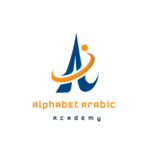Enhance Your Quran Recitation with Tajweed online
Quran Tajweed Classes Online is a fulfilling journey that strengthens your connection with the Holy Quran. Whether you’re a beginner or someone looking to refine your recitation skills, online Quran Tajweed courses provide a convenient and effective way to master the art of Tajweed from the comfort of your home. At Alphabet Arabic Academy, we offer tailored lessons designed to meet your learning needs, no matter your age or level of expertise. contact us

Experienced Online Quran and Tajweed Tutors
Our team of qualified and experienced tutors is dedicated to ensuring students grasp the rules of Tajweed with ease. With native Arabic-speaking teachers and tutors fluent in English, our courses are designed to provide personalized guidance. Whether you’re a beginner or an advanced learner, our expert instructors are here to help you achieve mastery in Quran recitation.
Flexibility of Online Virtual Classes with Us
We understand the demands of busy schedules, so our online Quran Tajweed classes are available at flexible times. Whether you’re a working professional, a busy parent, or a student, our virtual classes can easily fit into your day. Access quality Tajweed lessons from anywhere in the world at times that work for you.
Interactive Learning Tools and Software online
Our courses use modern, interactive tools to create an engaging learning experience. Through live video sessions, interactive exercises, and advanced Tajweed software, we make learning Quranic pronunciation and recitation accessible and enjoyable. You’ll have access to digital resources, ensuring that your learning continues even outside class hours.
Affordable Pricing Options with Flexibility all times
Learning Quran Tajweed doesn’t have to break the bank. At Alphabet Arabic Academy, we believe quality education should be accessible to all. Our courses are competitively priced, with flexible payment plans that cater to diverse budgets. Whether you’re looking for a course for kids, adults, or entire families, we’ve got affordable options for everyone.
Overview of Online Quran Tajweed Classes with Details
Our comprehensive Tajweed curriculum is designed to cater to learners of all levels. From basic rules of pronunciation to advanced recitation techniques, we cover everything you need to know to recite the Quran beautifully and correctly. With step-by-step lessons, students build their skills systematically, ensuring they fully understand Tajweed rules.
Quran Tajweed Classes Near Me: Study from Anywhere
Searching for “Home Quran Teacher Near Me”? No matter where you are in the world, our online platform brings expert Tajweed teachers directly to you. With live video lessons and personalized feedback, it feels like having a teacher right in your home.
Online Tajweed Course for Kids and Toddlers
Start your child’s Quranic journey with our engaging courses designed for kids and toddlers. Our tutors use child-friendly methods to help young learners grasp the basics of Arabic, Quran recitation, and Tajweed rules. We create a fun, interactive environment to make learning enjoyable and productive.
Online Quran Tajweed Through Interactive Methods
Our online Quran Tajweed courses incorporate interactive methods such as group recitations, practice quizzes, and guided exercises. These methods are proven to enhance understanding and retention, making it easier for learners to apply Tajweed rules while reciting the Quran.
Tajweed Classes for Adults and All Ages
It’s never too late to improve your Quran recitation. Our Tajweed classes for adults cater to learners of all ages, providing customized lessons that suit your pace and preferences. Whether you’re starting from scratch or polishing existing skills, we have the perfect course for you.

Success Stories from Students of Arabic Alphabet Academy
Our students’ success speaks for itself. From mastering Quran recitation to gaining confidence in their Arabic skills, learners of all ages and backgrounds have achieved incredible results with us. Explore their inspiring journeys and see how our programs have transformed their lives.
Frequently Asked Questions
What is Tajweed in the Holy Quran?
Tajweed refers to the set of rules governing the correct pronunciation of Arabic letters and sounds during Quran recitation.
How long does it take to learn Tajweed online with academy?
The time varies depending on your dedication and practice. Most students see significant progress within weeks to months.
Are online Tajweed lessons effective with me?
Absolutely! Online lessons offer flexible schedules, personalized attention, and interactive resources that make learning both effective and convenient.
Can beginners join Tajweed courses?
Yes, our courses are designed for all levels, including complete beginners.
How Can You Start Learning Quran Tajweed Online?
Ready to begin your journey to perfect Quran recitation? At Alphabet Arabic Academy, we offer affordable, high-quality courses tailored to your needs. Join our online Quran Tajweed courses today and take the first step toward mastering the art of Quranic recitation.
Visit our online academy or follow us on social media to explore our programs, learn about promotions, and connect with expert tutors. Start now and make your Quran recitation journey both meaningful and rewarding!
source 1 :
https://firdawsacademy.com/learn-tajweed-online/


